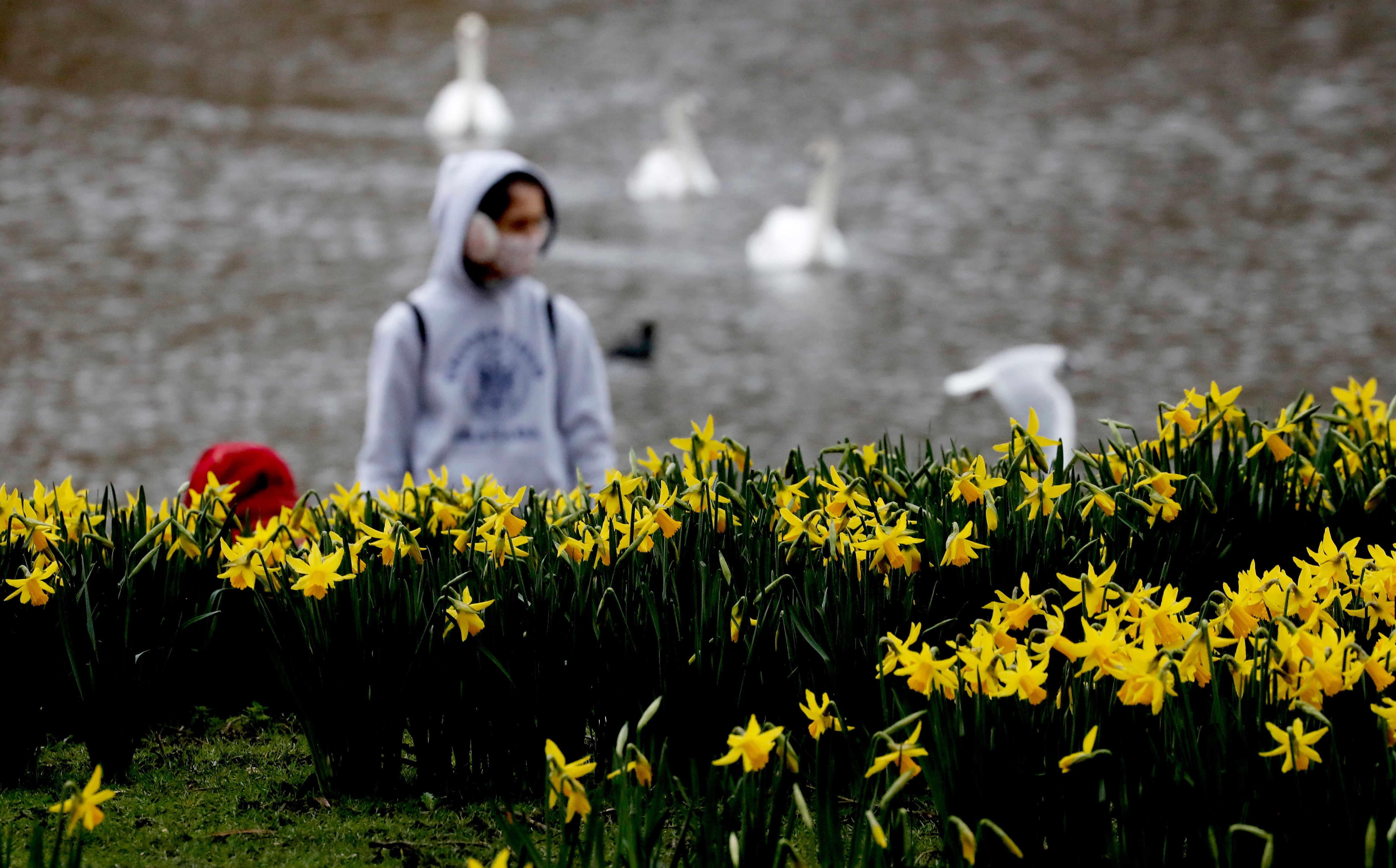UK COVID-19 infections falling as govt mulls easing lockdown
Clear evidence has emerged that the rate of coronavirus infections across the U.K. is falling sharply just days before British Prime Minister Boris Johnson outlines a roadmap for potentially easing lockdown restrictions in England

Your support helps us to tell the story
From reproductive rights to climate change to Big Tech, The Independent is on the ground when the story is developing. Whether it's investigating the financials of Elon Musk's pro-Trump PAC or producing our latest documentary, 'The A Word', which shines a light on the American women fighting for reproductive rights, we know how important it is to parse out the facts from the messaging.
At such a critical moment in US history, we need reporters on the ground. Your donation allows us to keep sending journalists to speak to both sides of the story.
The Independent is trusted by Americans across the entire political spectrum. And unlike many other quality news outlets, we choose not to lock Americans out of our reporting and analysis with paywalls. We believe quality journalism should be available to everyone, paid for by those who can afford it.
Your support makes all the difference.Clear evidence emerged Friday that the rate of coronavirus infections across the U.K. is falling sharply, just days before British Prime Minister Boris Johnson outlines a roadmap for potentially easing lockdown restrictions in England following the rapid rollout of COVID-19 vaccines.
The Office for National Statistics said in its weekly infection survey that one in 115 people tested positive for COVID-19 in England in the week to Feb. 12. In the previous week, the rate stood at one in 80. A similar picture emerged in the other three nations of the U.K. — Scotland, Wales and Northern Ireland.
Meanwhile, scientists advising the British government have estimated that the coronavirus reproduction number, a gauge of transmissibility, dipped to a range between 0.6 and 0.9 compared to the previous week's 0.7-to-0.9 range. The latest number indicates that every 10 people with the virus are now infecting between six and nine people, meaning that the epidemic is getting smaller.
However, the experts warned that the prevalence of the virus “remains high” and it therefore is “vital” that people continue to abide by stay at home orders.
The falling rates of transmission in the U.K., which has Europe's highest pandemic death toll with around 120,000 deaths, are set to inform the strategies of all four nations over the weeks to come.
The number of new confirmed cases has fallen for a few weeks now, leading to a sharp decline in the number of hospitalized COVID-19 patients and the number of daily virus-related deaths.
Johnson is due on Monday to outline a potential route out of lockdown for England over the coming weeks, though he has insisted the government will follow the “data, not dates.”
One widely expected change is that students will be able to start returning to school from March 8. Many scientists are advising a safety-first approach of staggered returns, with younger students heading back to the classroom first.
Wales is taking that approach. First Minister Mark Drakeford confirmed Friday that all primary school children — those ages 5 to 11 — are expected to return to face-to-face instruction as of mid-March, provided the coronavirus situation “continues to improve.”
Johnson, who is coming under pressure from a sizeable number of lawmakers from his Conservative Party to lift restrictions soon, is also set to lay out how different parts of the economy and society can reopen over coming weeks while adhering to social distancing requirements.
Shops selling non-essential items, such as books and footwear, hope they can reopen before the end of March, while pubs and restaurants are lobbying the government to be allowed to serve customers, at least outdoors, starting Easter weekend in early April.
Johnson, as well as the leaders of the devolved administrations in Scotland, Wales and Northern Ireland, are pinning their hopes for being able to lift certain restrictions on a continued fall in infections from lockdowns and vaccine drives.
The U.K. leads Europe in vaccinations, with 16.4 million people, or more than one-quarter of the adult population, having received a first dose.
Separately Friday, Britain's high court ruled that the government acted unlawfully by failing to disclose details of contracts made during the pandemic despite the “unprecedented” situation. Health Secretary Matt Hancock was found to have breached his legal obligation to publish contract award notices within 30 days of the award of contracts.
___
Follow all of AP’s pandemic coverage at
https://apnews.com/hub/coronavirus-pandemic, https://apnews.com/hub/coronavirus-vaccine and https://apnews.com/UnderstandingtheOutbreak